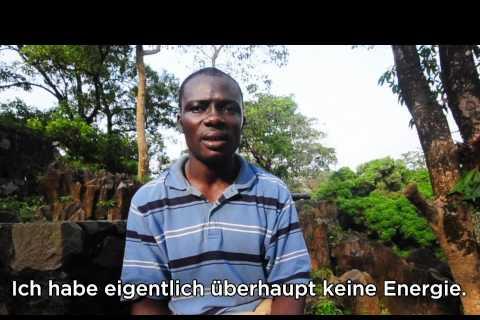Real action to face climate change has once again been blocked by the world's polluters. The 17th Conference of the Parties of the United Nations Framework Convention on Climate Change (UN COP17) in Durban ended with the launching of a new round of negotiations (the Durban Platform) aimed at a new regime. The decision represents a crime against humanity as long as postponing action to 2020 allows global temperatures to increase 4 degrees Celsius, based on the promises for emission reductions, made by industrial countries in Cancun for the period 2012-2020.
Bulletin articles
Since December is the month in which International Human Rights Day is commemorated, we feel it is urgent to highlight the cases of two communities in countries that seem very distant from one another and yet have a great deal in common. In Honduras and India, these communities have been struggling for years against the new form of colonialism represented by powerful economic groups connected with oil palm plantations and the iron and steel industry, respectively.
A new report published in November 2011, exposes how local police in the Province of Jambi on the Indonesian island of Sumatra, working with oil palm plantation staff, systematically evicted people from three settlements, firing guns to scare them off and then using heavy machinery to destroy their dwellings and bulldoze concrete floors into the nearby creeks. The operations were carried out over a week in mid-August and have already sparked an international controversy. Andiko, Executive Director of the Indonesian community rights NGO, HuMa said:
In Thailand, indigenous communities have been and continue to be threatened to be expelled from their traditional territories as a result of the implementation of the country´s REDD+ policy. This human rights violation is due to the fact that communities have been accused of contributing to the climate crisis because they would deforest, they would destroy natural resources and they would cause forest fires, all activities that result in carbon emissions. At the same time, they use not to be consulted when this type of analysis and, based on this, policies are being formulated.
What can we expect from the 17th Conference of the Parties to the UN Framework Convention on Climate Change in Durban?
Since time immemorial, human beings have used biomass to produce energy in a sustainable way. In the meantime, industrialization is exhausting the world's reserves of fossil fuels, leading to the frenetic search for other sources of energy. One of these is bioenergy, based on the production of energy from living matter, or biomass.
Biomass is organic material such as trees, shrubs, grasses, grains, algae, microbes and also plant residues.
The Swedish state-owned multinational Vattenfall is Europe's fifth largest energy producer. Its affiliate Vattenfall Europe, based in Berlin, is one of the four biggest companies in the German energy market. Vattenfall's energy production there is primarily fuelled by coal (65%) – it has its own lignite mines in east Germany – and uranium (26%). But the company has also branched out into the use of supposedly “clean” energy sources, like wood.
A new expansion cycle: carbon and biomass plantations
Last month, I was in Bangkok for a meeting about carbon markets in southeast Asia. It was ironic to be discussing a false solution to climate change when large areas of Thailand were underwater and floods were threatening the capital. (While we cannot say that this particular flood was caused by climate change, we can say that this type of flood will become more common as the planet continues to warm.)
Next week an international farmers' conference will take place in Mali to stop land grabbing. Organized by La Via Campesina, it is aimed at opening a space to listen to and learn from local peasants, mainly from African countries, on what they have to say about land grabbing and to unite forces to resist the process and build future strategies.
The state of Acre, in the Brazilian Amazon region, earned worldwide attention in the late 1980s through the struggle for social and environmental justice waged by the late Chico Mendes. In more recent years, the state has once again gained prominence in Brazil and internationally, but for very different reasons. This time the spotlight on the state is a result of the propaganda around the “green” development model promoted through “forest governance” and based on the so-called “sustainable management” of the forests and the sale of environmental services.
The new abstractions created by the climate change discourse in the form of REDD and REDD+ have come to deepen the commodification of forests as greater mobility is created and trading across countries and continents is made possible through climate mitigation and forestry schemes, say Kanchi Kohli and Manju Menon from the Indian organization Kalpavriksh, in the recent publication “Banking on Forests: Assets for a Climate Cure?”

